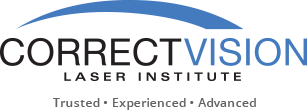Are LASIK Results Permanent?
 LASIK is touted as being a solution to common vision problems. Most patients heal in a week or less and experience optimal vision a couple of months later. Before undergoing surgery in the hopes of getting rid of your glasses or contacts for good, though, it’s important to note that the effects of LASIK aren’t always permanent. There are certain situations and conditions that can cause vision to deteriorate again.
LASIK is touted as being a solution to common vision problems. Most patients heal in a week or less and experience optimal vision a couple of months later. Before undergoing surgery in the hopes of getting rid of your glasses or contacts for good, though, it’s important to note that the effects of LASIK aren’t always permanent. There are certain situations and conditions that can cause vision to deteriorate again.
What Can Affect LASIK Results
1. Unstable Prescription: Before hitting your 20s, your vision is much more likely to fluctuate. Undergoing LASIK before your prescription stabilizes won’t stop your eyes from changing. If your prescription has varied quite a bit in the recent past and shows no signs of reaching a point of stability, it’s best to wait to have any kind of corrective surgery. The general recommendation is to put off LASIK until your prescription has remained unchanged for a full year. Many LASIK surgeons have a minimum age for patients due to this potential complication and the risk that accompanies all types of surgery.
2. Effects of Aging: Getting older causes physical changes in your eyes that may result in conditions, such as presbyopia, a common vision problem that is due to a lack of flexibility in the lenses. Prior LASIK surgery isn’t a cure for this normal degeneration, so it’s possible that you may need reading glasses in your 40s or 50s. If you haven’t had LASIK by that time, undergoing the procedure won’t correct the cause of presbyopia.
3. Health Complications: Developing conditions, such as Type 2 diabetes, cataracts and macular degeneration, can reverse or interfere with the effects of LASIK. People who already have these conditions aren’t often considered good candidates for the surgery. Weak or thin corneas generally rule out LASIK, as well, since the surgery involves cutting into the cornea to access the inner part of the eye. However, taking good care of your overall health can help to prevent some of these conditions, allowing you to keep your enhanced vision as you age.
4. Second Surgery: Not every LASIK procedure produces perfect results the first time. In some cases, vision may be under- or over-corrected, or small changes in the eyes over a short period of time may undermine the effectiveness of the initial treatment. To reduce the chances that you’ll need a “touch-up” procedure, research different surgeons before committing to one particular doctor. Check their credentials, and inquire about the technology they use during the surgery. More experience and more modern equipment are signs that you’ll get high-quality care.
The chance of vision regressing after LASIK is considered to be small, but the best way to know if you’re in a high-risk group is to talk to your eye doctor. He or she may advise you to wait before having the procedure done or suggest an alternative if necessary. However you choose to manage your eyes, annual checkups help ensure peak vision and ongoing health throughout your life.
CorrectVision Laser Institute is one of Florida’s most advanced vision correction practices with extensive experience in LASIK. Our goal is to open your eyes to the world of great vision by offering unparalleled expertise and the most advanced technology available. Contact us today for a consultation with one of our South Florida eye specialists, located in Hollywood, Weston and Pembroke Pines!

